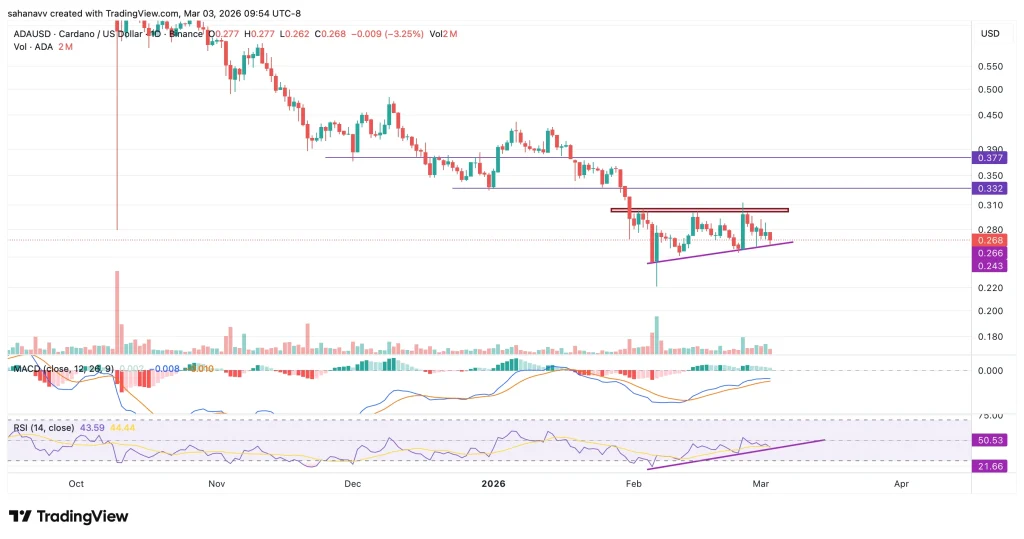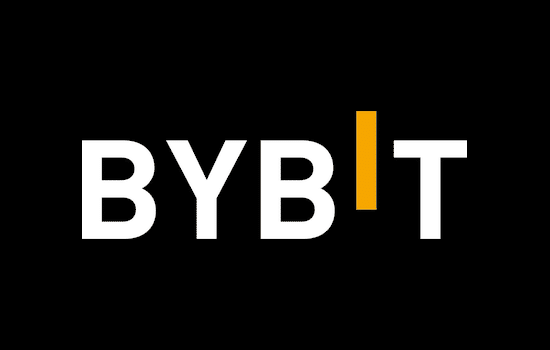Understanding Crypto Taxes in 2023
Do you Pay Taxes on Your Crypto? Yes, in the majority of countries you have to pay tax on your crypto. How it is taxed, however, differs from country to country.

Yes, in the majority of countries you have to pay tax on your crypto. How it is taxed, however, differs from country to country.
You don’t pay taxes in any of the countries listed below when you buy crypto with fiat currency, you are gifted crypto or transfer your crypto between wallets. You are only subject to taxation if you dispose of your crypto.
The countries we shall cover include:
- USA
- United Kingdom
- Australia
- Germany
How is Crypto Taxed?
In all of the above countries, (except Germany) crypto activities are subject to both capital gains tax and income tax; depending on what you are doing with your crypto.
How is Crypto Taxed in the United States
The IRS views crypto assets in the same way they treat property, therefore you may be subject to income tax (IT) or capital gains tax (CGT), depending on the specific transaction being performed.
US Capital Gains on Crypto
The general capital gains tax rules apply when you dispose of your crypto in any of the three specified cases (Selling, Trading, and Spending your crypto). You will pay CGT for any profit you make, not the total sale amount.
If you make a capital gains loss when you sell/trade or spend your crypto asset, you can offset these against any capital gains you made, thus reducing your overall tax bill. Taxpayers can offset up to $3000 per person.
The tax rate paid depends on how long the asset had been held. Long-term CGT applies if you have held your crypto for more than 12 months, whereas the short-term CGT rate applies for less than a year.
Long-Term Capital Gains Tax Rate (2023 filing)
Tax-Free Allowance.
If you earn less than $44,626 you will pay no CGT on your long-term holdings.
Tax Rate | Single ($) | Head of Household ($) | Married (joint filing) ($) | Married (separate filing) ($) |
15% | 44,626 to 492,300 | 59,751 to 523,050 | 89,251 to 553,850 | 44,626 to 276,900 |
20% | 492,301+ | 523,051+ | 553,851+ | 276,901+ |
Short-term Capital Gains Tax Rate (2023 filing)
The short-term CGT you pay is based on the same rates as your federal income tax. The rates for the 2023 tax year are as follows:
Tax Rate | Single ($) | Head of Household ($) | Married (joint filing) ($) | Married (separate filing) ($) |
10% | 0 to 11,000 | 0 to 15,700 | 0 to 22,000 | 0 to 11,000 |
12% | 11,001 to 44,725 | 15,701 to 59,850 | 22,001 to 89,450 | 11,001 to 44,725 |
22% | 44,726 to 95,375 | 59,851 to 95,350 | 89,451 to 190,750 | 44,726 to 95,375 |
24% | 95,376 to 182,100 | 95,351 to 182,100 | 190,751 to 364,200 | 95,376 to 182,100 |
32% | 182,101 to 231,250 | 182,101 to 231,250 | 364,201 to 462,500 | 182,101 to 231,250 |
35% | 231,251 to 578,125 | 231,251 to 578,100 | 462,501 to 693,750 | 231,251 to 346,875 |
37% | 578,126+ | 578,101+ | 693,751+ | 346,876+ |
Gifting Crypto to Reduce your Tax Bill
US taxpayers can make use of the “annual gift tax exclusion” by gifting up to $17,000 of crypto to someone. This can help reduce your overall tax bill. If you gift more than this amount but are still under the lifetime gift tax exemption total of $12.92 million, you won’t need to pay gift tax but you may need to fill in Form 709.
Paying Income Tax on Crypto in the US
With people being paid in crypto becoming more prevalent, coupled with the advent of decentralized finance (DeFi) and the opportunities this brings for people to “earn” crypto, we need to cover the tax implications they bring.
The IRS has published guidance on what could be considered as income, these include:
- Being paid your salary (or part thereof) in crypto
- Hobby-level crypto mining
- Receiving crypto from an airdrop or a hard fork
- Staking rewards
- Referral bonuses
When it comes to DeFi, there isn’t much guidance yet but it would be prudent to prepare. The following could be considered taxable income:
- Earning interest from lending protocols
- Earning crypto from learn/play/shop/watch/browse etc. to earn platforms
- Receiving liquidity or governance tokens
Please note, the IRS has confirmed they do track crypto transactions on platforms where KYC has been performed.
How is Crypto Taxed in the United Kingdom
UK tax laws treat crypto in a similar way to the US, in that you are liable to pay CGT or/and IT.
UK Capital Gains Tax on Crypto
You will be subject to capital gains tax if you dispose of your crypto in one of the following four ways:
- Selling crypto for a fiat currency
- Trading crypto for another crypto (includes stablecoins)
- Spending Crypto on goods or services
- Gifting crypto to anyone other than your spouse or civil partner
UK Capital Gains Tax Rates for 2023
The UK government is changing the tax-free allowance in the 2023 tax year from £12,600 to £6,000, please remember this!
In the UK, all capital gains are taxed under the same bracket (there is no difference between long or short-term capital gains). The rates you will pay in 2023 are as follows:
Tax Rate | Taxable Income (£) |
10% | Basic Rate. 6,000 - 50,270 |
20% | Higher Rate. 50,271 - 150,000 |
20% | Additional Rate. 150,001+ (in addition to Higher Rate) |
Crypto Capital Loses in the UK
As in the US, if you make a capital gains loss, you can reduce your tax bill by offsetting these against any capital gains you made. Unlike the US, however, there is no limit to how much you can offset.
Paying Income Tax on Crypto in the UK
Now let's look at crypto income and Income Tax.
Again, as in the US, income as crypto is subject to income tax. Crypto transactions that are classified as income are taxed at your regular income tax band. You may also need to make National Insurance contributions if your salary is being paid in crypto.
Transactions that are classed as income include:
- Beginning paid in crypto (known as 'money's worth'). This is also subject to National Insurance.
- Staking rewards
- Crypto mining
- Receiving crypto from airdrops
HM Revenue and Customs (HMRC) has now given guidance on DeFi transactions, This guidance states that DeFi transactions may be subject to income tax if the activities have the “nature of income” they will be subject to income tax.
What is the “nature of income” I hear you ask!
This rather ambiguous term relates to rewards from staking, lending and yield farming, etc. In short, if it seems like you are being paid for providing some kind of service (securing the network, loans, or providing liquidity), the HMRC wants income tax for it!
UK Income Tax Rates for 2023
Tax Rate | Taxable Income (£) | Band Name |
0% | 0 to 12,750 | Personal allowance |
20% | 12,751 to 50,270 | Basic Rate |
40% | 50,271 to 150,000 | Higher Rate |
45% | 150,001+ | Additional Rate |
The UK uses progressive tax banding, meaning you pay the rate into which your earnings fall. For example; if you earn £55,270 you pay 0% on the first £12,750, 20% on £12,751 to £50,270 and you only pay the higher band of 40% on £5000.
Note: If you earn over £100,000 you have a reduced personal allowance and if your earnings exceed £125,000 you get no personal allowance.
Important: The HMRC tracks crypto in the same way as the IRS does in the US.
How is Crypto Taxed in Australia
In Australia your crypto investment is generally subject to CGT. While it is referred to as CGT, it is not a separate tax type from income tax. You report your gains (minus losses) in your regular income tax return and pay tax on your overall gains.
CGT and income tax have the same tax rates. If you have held your crypto for over 12 months, you qualify for a 50% discount on the gains made from disposing of that crypto.
The term “Disposal” refers to any time your crypto trades ownership.
This includes:
- Selling crypto for AUD (or another fiat currency)
- Swapping crypto for crypto, including stablecoins and NFTs
- Spending crypto on goods and services, when not seen as a personal use asset (see below)
- Gifting crypto
Australian Tax Office (ATO) Individual Income Tax Rates 2022–2023
Income | Tax Rate |
Up to $18,200 | Nil |
$18,201 to $45,000 | 19% on each $1 over $18,200 |
$45,001 to $120,000 | $5,092 + 32.5% on each $1 over $45,000 |
$120,001 to $180,000 | $29,467 + 37% on each $1 over $120,000 |
$180,001+ | $51,667 + 45% on each $1 over $180,000 |
Income Tax on Crypto in Australia
As with the countries we have already discussed, if you receive crypto as income, it will also levy an income tax charge. The things that can trigger income tax are similar to the US and UK but with a couple of nuanced differences:
- Receiving your salary in crypto (or part thereof)
- Selling your own NFTs (that you have minted)
- Receiving an income by being a validator through PoS
- Earning an income through commercial mining on a PoW blockchain
- Receiving airdrops, referral rewards, or engage-to-earn platform rewards
- DeFi; Earning interest from yield farming and/or on lending platforms, earning liquidity tokens or governance tokens
Like the US and UK, buying crypto with local fiat currencies, holding, transferring between your own wallets, donating to charity(1), and receiving crypto as a gift is not taxable in Australia.
However, in addition to these circumstances, the ATO also allows you to acquire crypto from “hobby-level” mining tax-free and to purchase goods and services under $10,000 (if used as a personal use asset). (2)
(1) Requires deductible gift recipient status (DGR).
(2) Personal Use Assets are items purchased for up to $10,000 of cryptocurrency to directly buy something else with crypto for personal use or consumption.
Note: The ATO does track crypto. If you have an account with an “Australian cryptocurrency designated service” (DSPs), they will have your data already.
How is Crypto Taxed in Germany
In Germany, things are a bit easier!
Unlike the other countries we have discussed, the German tax office (Bundeszentralamt für Steuern (BZSt)) views crypto as private money rather than a capital asset.
This means that if you dispose of your crypto after holding it for 12 months, you pay no tax on any profit you make!
Not all crypto activity is tax-free though. The BZSt does subject some crypto to Income Tax. Examples include:
- Getting your salary in crypto
- Mining crypto
- Staking crypto
- Disposal of crypto you’ve held for less than one year if the gain is more than €600 (under €600 is tax-free)
When it comes to staking and mining, you'll only pay tax if you earn above the €256 threshold each year for additional income.
German Income and Solidarity Tax Rates 2023
Income Tax Rates
Tax Rate | Single Taxpayer | Married Taxpayer |
0% | Up to €10,347 | Up to €21,264 |
14% - 42% | €10,348 to €61,971 | €21,265 to €123,942 |
42% | €61,972 to €277,825 | €123,943 to €555,650 |
45% | €277,825+ | €555,651+ |
Solidarity Tax Rate
As well as income tax, every taxpayer in Germany has to pay Solidarity Tax (Solidaritätszuschlag), which is capped at 5.5% of income tax. This is imposed as a percentage of all individual income taxes.
Final Thoughts
“Nothing is certain except death and taxes”
The wise but ominous words spoken by Benjamin Franklin ring very true here.
Everyone has to pay taxes. While it can be a minefield, we hope we have provided some clarity. However, we strongly advise that you seek professional, financial assistance if you are unsure of your tax obligation.
Delegate Your Voting Power to FEED DRep in Cardano Governance.
DRep ID: drep12ukt4ctzmtf6l5rj76cddgf3dvuy0lfz7uky08jfvgr9ugaapz4 | We are driven to register as a DRep by our deep dedication to the Cardano ecosystem and our aspiration to take an active role in its development, ensuring that its progress stays true to the principles of decentralization, security, and community empowerment.DELEGATE VOTING POWER!








